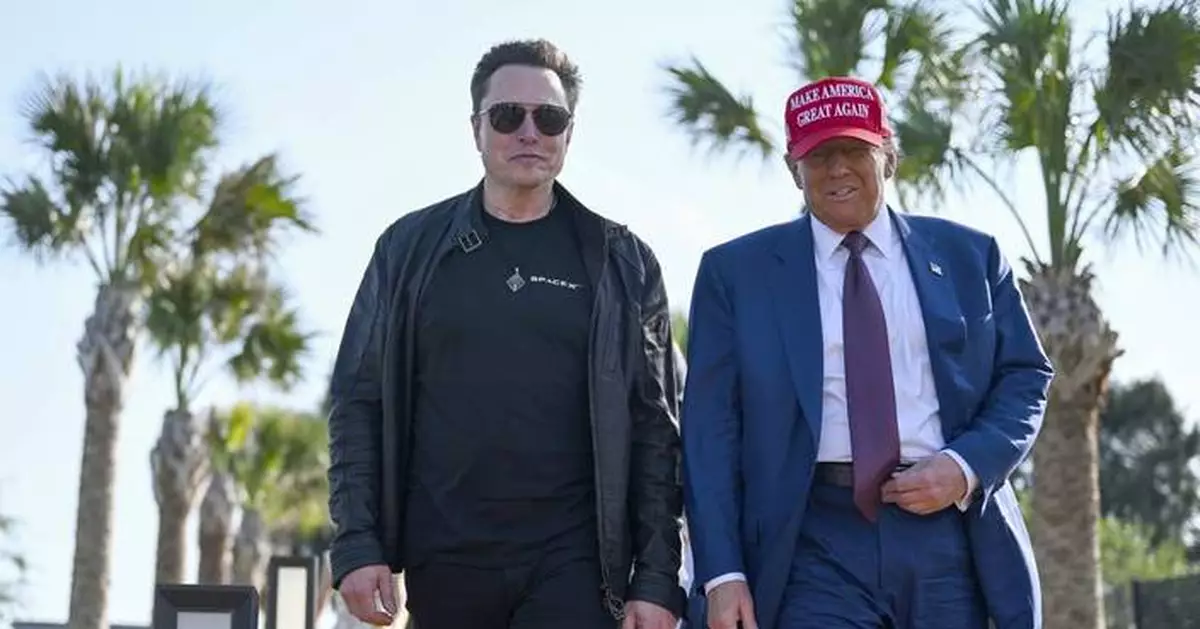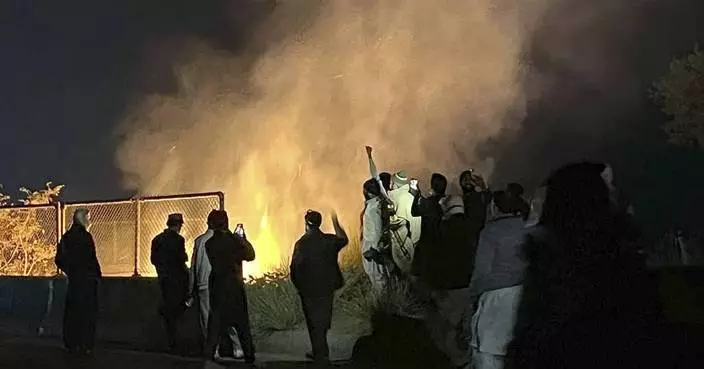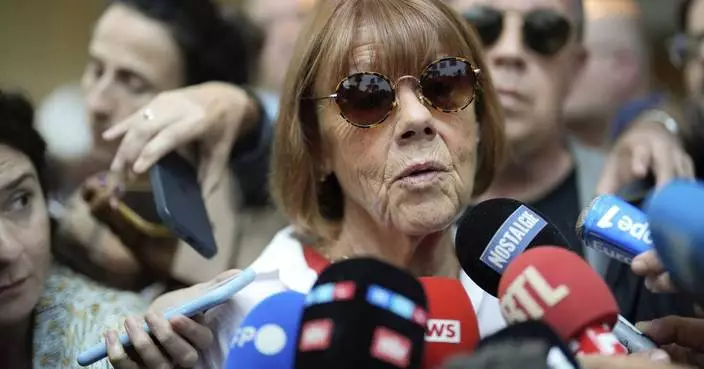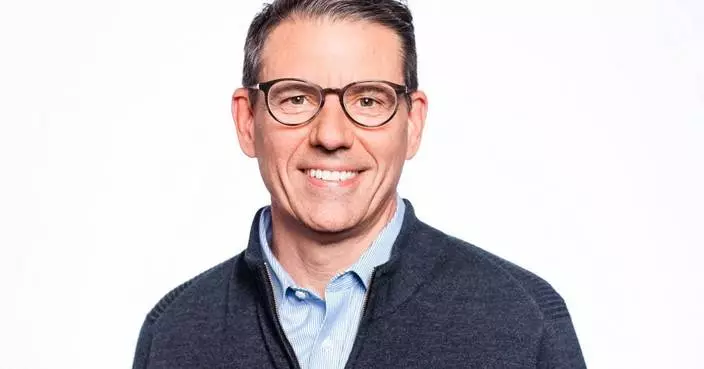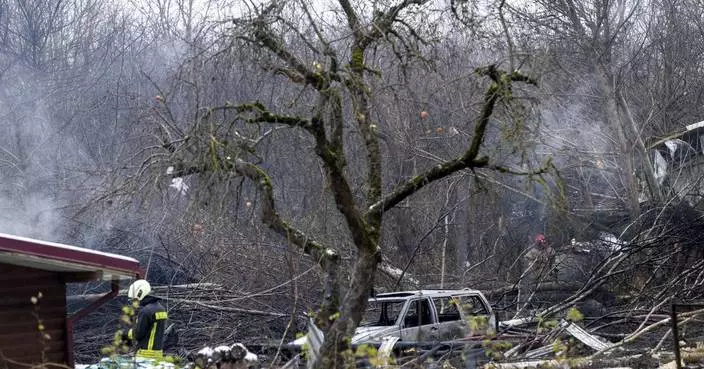WASHINGTON (AP) — Donald Trump’s personnel choices for his new Cabinet and White House reflect his signature positions on immigration and trade but also a range of viewpoints and backgrounds that raise questions about what ideological anchors might guide his Oval Office encore.
With a rapid assembly of his second administration — faster than his effort eight years ago — the former and incoming president has combined television personalities, former Democrats, a wrestling executive and traditional elected Republicans into a mix that makes clear his intentions to impose tariffs on imported goods and crack down on illegal immigration but leaves open a range of possibilities on other policy pursuits.
Click to Gallery
FILE - Rep. Lori Chavez-DeRemer, R-Ore., accompanied by Majority Whip Rep. Tom Emmer, R-Minn., left, and House Majority Leader Rep. Steve Scalise, R-La., right, speaks at a news conference on Capitol Hill in Washington, Jan. 25, 2023. (AP Photo/Andrew Harnik, File)
FILE - Former Democratic Rep. Tulsi Gabbard answers a question during a campaign event, Sept. 14, 2024, in Glendale, Ariz. (AP Photo/Ross D. Franklin, File)
FILE - Rep. Mike Waltz, R-Fla., speaks during a hearing on Capitol Hill, July 22, 2024, in Washington. (AP Photo/Rod Lamkey, Jr., File)
FILE - Robert F. Kennedy Jr., speaks before Republican presidential nominee former President Donald Trump at a campaign event Nov. 1, 2024, in Milwaukee. (AP Photo/Morry Gash, File)
FILE - Rep. Lori Chavez-DeRemer, R-Ore., accompanied by Majority Whip Rep. Tom Emmer, R-Minn., left, and House Majority Leader Rep. Steve Scalise, R-La., right, speaks at a news conference on Capitol Hill in Washington, Jan. 25, 2023. (AP Photo/Andrew Harnik, File)
FILE - Republican presidential nominee former President Donald Trump, left, listens as investor Scott Bessent speaks on the economy in Asheville, N.C., Aug. 14, 2024. (AP Photo/Matt Kelley, File)
FILE - Republican presidential nominee former President Donald Trump smiles at an election night watch party at the Palm Beach Convention Center, Wednesday, Nov. 6, 2024, in West Palm Beach, Fla. (AP Photo/Evan Vucci, File)
FILE - President Donald Trump, left, listens as acting director of the Office of Management and Budget Russel Vought speaks during an event on "transparency in Federal guidance and enforcement" in the Roosevelt Room of the White House, Oct. 9, 2019, in Washington. (AP Photo/Evan Vucci, File)
FILE - Republican presidential nominee former President Donald Trump greets Sen. Marco Rubio, R-Fla., during a campaign rally at J.S. Dorton Arena, Nov. 4, 2024, in Raleigh, N.C. (AP Photo/Evan Vucci, File)
President-elect Donald Trump walks with Elon Musk before the launch of the sixth test flight of the SpaceX Starship rocket Tuesday, Nov. 19, 2024 in Boca Chica, Texas. (Brandon Bell/Pool via AP)
“The president has his two big priorities and doesn’t feel as strongly about anything else — so it’s going to be a real jump ball and zigzag,” predicted Marc Short, chief of staff to Vice President Mike Pence during Trump’s 2017-21 term. “In the first administration, he surrounded himself with more conservative thinkers, and the results showed we were mostly rowing in the same direction. This is more eclectic.”
Indeed, Secretary of State-designee Marco Rubio, the Florida senator who has pilloried authoritarian regimes around the world, is in line to serve as top diplomat to a president who praises autocratic leaders like Russia’s Vladimir Putin and Hungary’s Viktor Orban.
Republican Rep. Lori Chavez-DeRemer of Oregon has been tapped to sit at the Cabinet table as a pro-union labor secretary alongside multiple billionaires, former governors and others who oppose making it easier for workers to organize themselves.
The prospective treasury secretary, Scott Bessent, wants to cut deficits for a president who promised more tax cuts, better veterans services and no rollbacks of the largest federal outlays: Social Security, Medicare and national defense.
Abortion-rights supporter Robert F. Kennedy Jr. is Trump's choice to lead the Health and Human Services Department, which Trump’s conservative Christian base has long targeted as an agency where the anti-abortion movement must wield more influence.
Former Republican House Speaker Newt Gingrich allowed that members of Trump’s slate will not always agree with the president and certainly not with one another. But he minimized the potential for irreconcilable differences: “A strong Cabinet, by definition, means you’re going to have people with different opinions and different skills.”
That kind of unpredictability is at the core of Trump’s political identity. He is the erstwhile reality TV star who already upended Washington once and is returning to power with sweeping, sometimes contradictory promises that convinced voters, especially those in the working class, that he will do it all again.
“What Donald Trump has done is reorient political leadership and activism to a more entrepreneurial spirit,” Gingrich said.
There's also plenty of room for conflict, given the breadth of Trump's 2024 campaign promises and his pattern of cycling through Cabinet members and national security personnel during his first term.
This time, Trump has pledged to impose tariffs on foreign goods, end illegal immigration and launch a mass deportation force, goose U.S. energy production and exact retribution on people who opposed — and prosecuted — him. He's added promises to cut taxes, raise wages, end wars in Israel and Ukraine, streamline government, protect Social Security and Medicare, help veterans and squelch cultural progressivism.
Trump alluded to some of those promises in recent weeks as he completed his proposed roster of federal department heads and named top White House staff members. But his announcements skimmed over any policy paradoxes or potential complications.
Bessent has crusaded as a deficit hawk, warning that the ballooning national debt, paired with higher interest rates, drives consumer inflation. But he also supports extending Trump’s 2017 tax cuts that added to the overall debt and annual debt service payments to investors who buy Treasury notes.
A hedge-fund billionaire, Bessent built his wealth in world markets. Yet, generally speaking, he’s endorsed Trump's tariffs. He rejects the idea that they feed inflation and instead frames tariffs as one-time price adjustments and leverage to achieve U.S. foreign policy and domestic economic aims.
Trump, for his part, declared that Bessent would “help me usher in a new Golden Age for the United States.”
Chavez-DeRemer, Trump promised, “will achieve historic cooperation between Business and Labor that will restore the American Dream for Working Families.”
Trump did not address the Oregon congresswoman’s staunch support for the PRO-Act, a Democratic-backed measure that would make it easier for workers to unionize, among other provisions. That proposal passed the House when Democrats held a majority. But it’s never had measurable Republican support in either chamber on Capitol Hill, and Trump has never made it part of his agenda.
When Trump named Kennedy as his pick for health secretary, he did not mention the former Democrat’s support for abortion rights. Instead, Trump put the focus on Kennedy’s intention to take on the U.S. agriculture, food processing and drug manufacturing sectors.
The vagaries of Trump’s foreign policy stand out, as well. Trump's choice for national security adviser, Florida Rep. Mike Waltz, offered mixed messages Sunday when discussing the Russia-Ukraine war, which Trump claims never would have started had he been president, because he would have prevailed on Putin not to invade his neighboring country.
Speaking on “Fox News Sunday,” Waltz repeated Trump’s concerns over recent escalations, which include President Joe Biden approving sending antipersonnel mines to Ukrainian forces.
“We need to restore deterrence, restore peace and get ahead of this escalation ladder, rather than responding to it,” Waltz said. But in the same interview, Waltz declared the mines necessary to help Ukraine “stop Russian gains” and said he’s working “hand in glove” with Biden’s team during the transition.
Meanwhile, Tulsi Gabbard, Trump’s pick for director of national intelligence, the top intelligence post in government, is an outspoken defender of Putin and Syrian President Bashar al Assad, a close ally of Russia and Iran.
Perhaps the biggest wildcards of Trump’s governing constellation are budget-and-spending advisers Russell Vought, Elon Musk and Vivek Ramaswamy. Vought led Trump’s Office of Management and Budget in his first term and is in line for the same post again. Musk, the world’s wealthiest man, and Ramaswamy, a mega-millionaire venture capitalist, are leading an outside advisory panel known as the “Department of Government Efficiency.”
The latter effort is a quasi-official exercise to identify waste. It carries no statutory authority, but Trump can route Musk’s and Ramaswamy’s recommendations to official government pathways, including via Vought.
A leading author of Project 2025, the conservative movement’s blueprint for a hard-right turn in U.S. government and society, Vought envisions OMB not just as an influential office to shape Trump’s budget proposals for Congress but a power center of the executive branch, “powerful enough to override implementing agencies’ bureaucracies.”
As for how Trump might navigate differences across his administration, Gingrich pointed to Chavez-DeRemer.
“He might not agree with her on union issues, but he might not stop her from pushing it herself,” Gingrich said of the PRO-Act. “And he will listen to anybody. If you convince him, he absolutely will spend presidential capital.”
Short said other factors are more likely to influence Trump: personalities and, of course, loyalty.
Vought “brought him potential spending cuts” in the first administration, Short said, “that Trump wouldn’t go along with.” This time, Short continued, “maybe Elon and Vivek provide backup,” giving Vought the imprimatur of two wealthy businessmen.
“He will always calculate who has been good to him,” Short said. “You already see that: The unions got the labor secretary they wanted, and Putin and Assad got the DNI (intelligence chief) they wanted. … This is not so much a team-of-rivals situation. I think it’s going to look a lot like a reality TV show.”
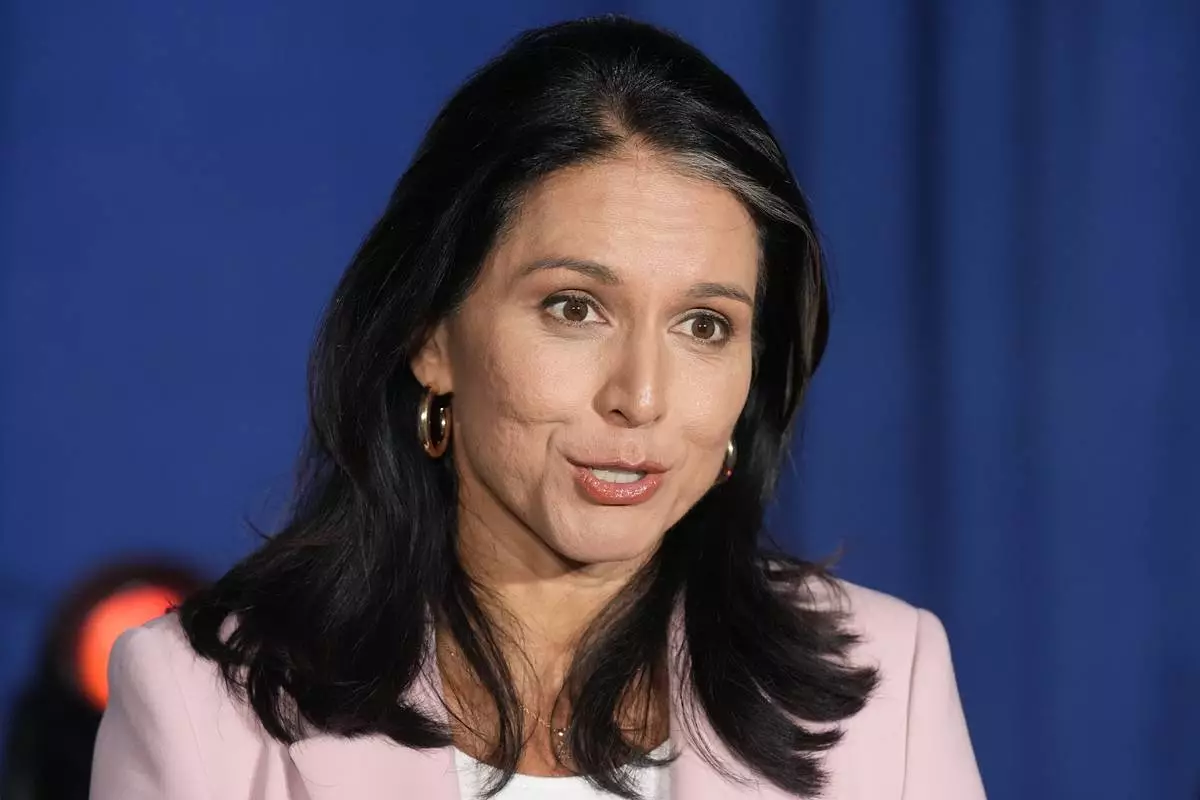
FILE - Former Democratic Rep. Tulsi Gabbard answers a question during a campaign event, Sept. 14, 2024, in Glendale, Ariz. (AP Photo/Ross D. Franklin, File)
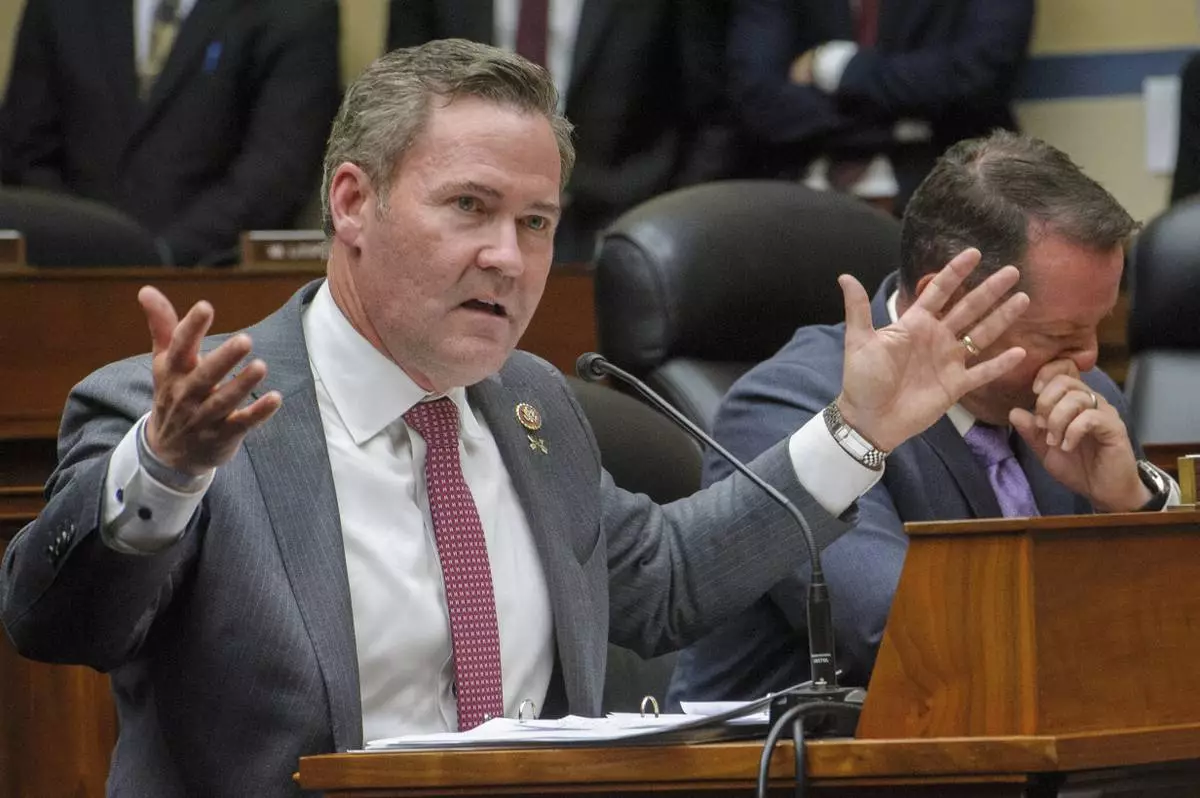
FILE - Rep. Mike Waltz, R-Fla., speaks during a hearing on Capitol Hill, July 22, 2024, in Washington. (AP Photo/Rod Lamkey, Jr., File)
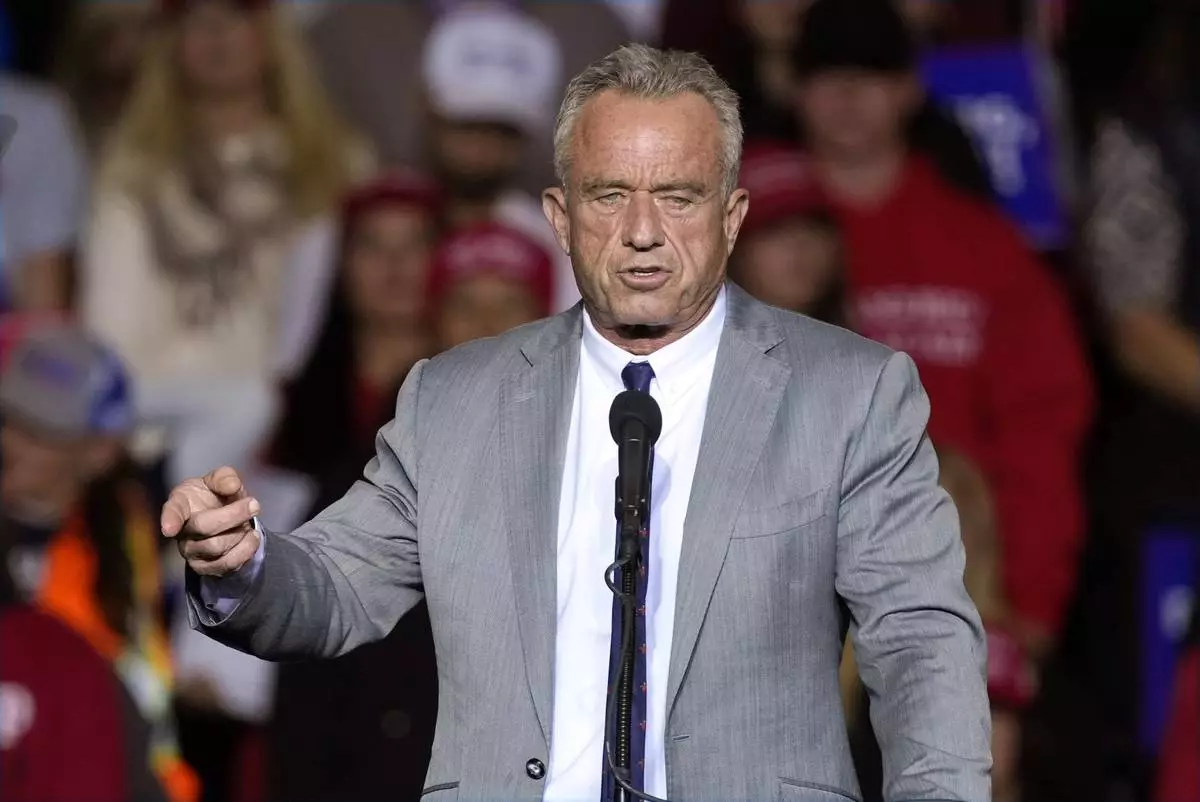
FILE - Robert F. Kennedy Jr., speaks before Republican presidential nominee former President Donald Trump at a campaign event Nov. 1, 2024, in Milwaukee. (AP Photo/Morry Gash, File)
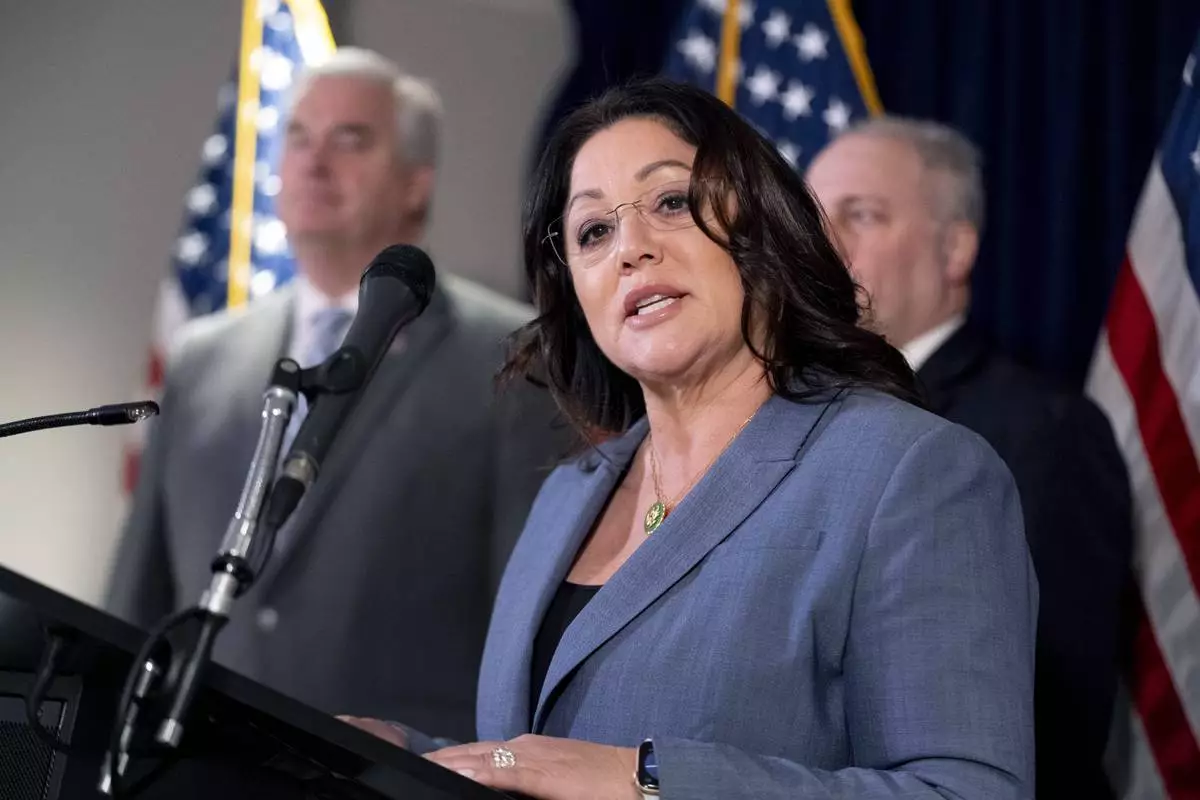
FILE - Rep. Lori Chavez-DeRemer, R-Ore., accompanied by Majority Whip Rep. Tom Emmer, R-Minn., left, and House Majority Leader Rep. Steve Scalise, R-La., right, speaks at a news conference on Capitol Hill in Washington, Jan. 25, 2023. (AP Photo/Andrew Harnik, File)
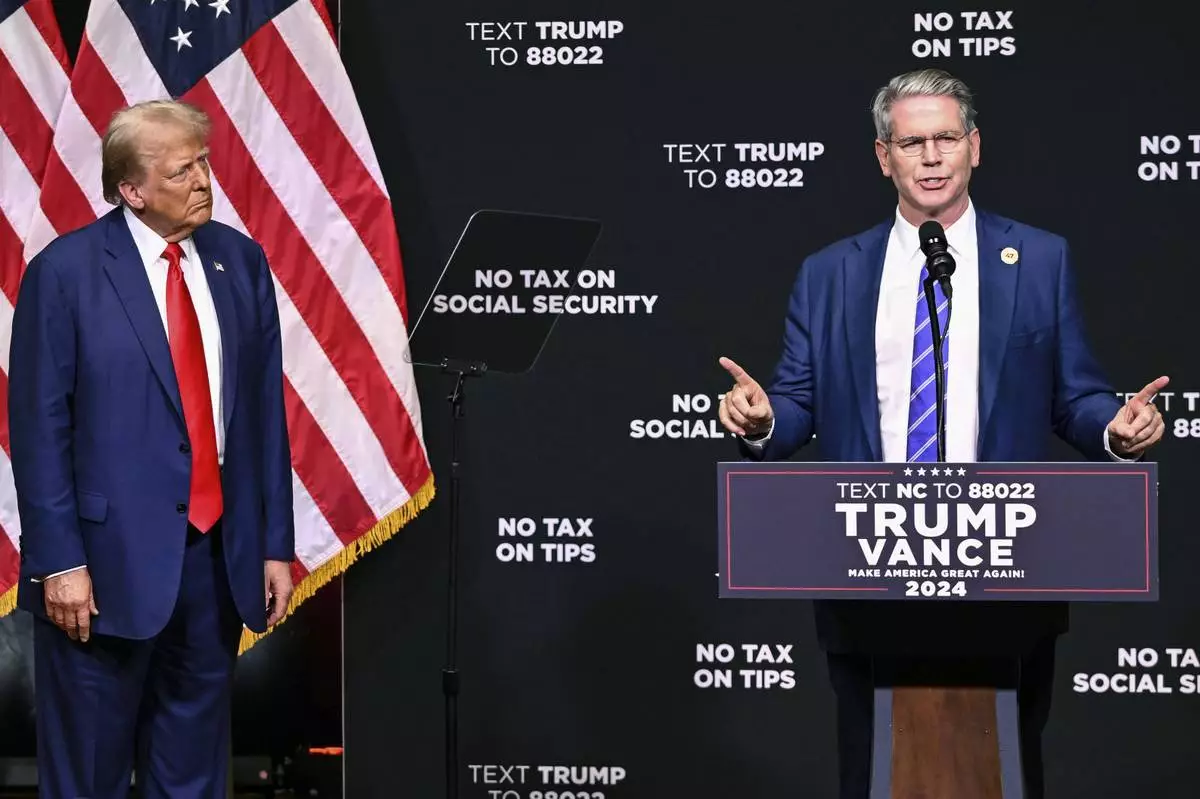
FILE - Republican presidential nominee former President Donald Trump, left, listens as investor Scott Bessent speaks on the economy in Asheville, N.C., Aug. 14, 2024. (AP Photo/Matt Kelley, File)
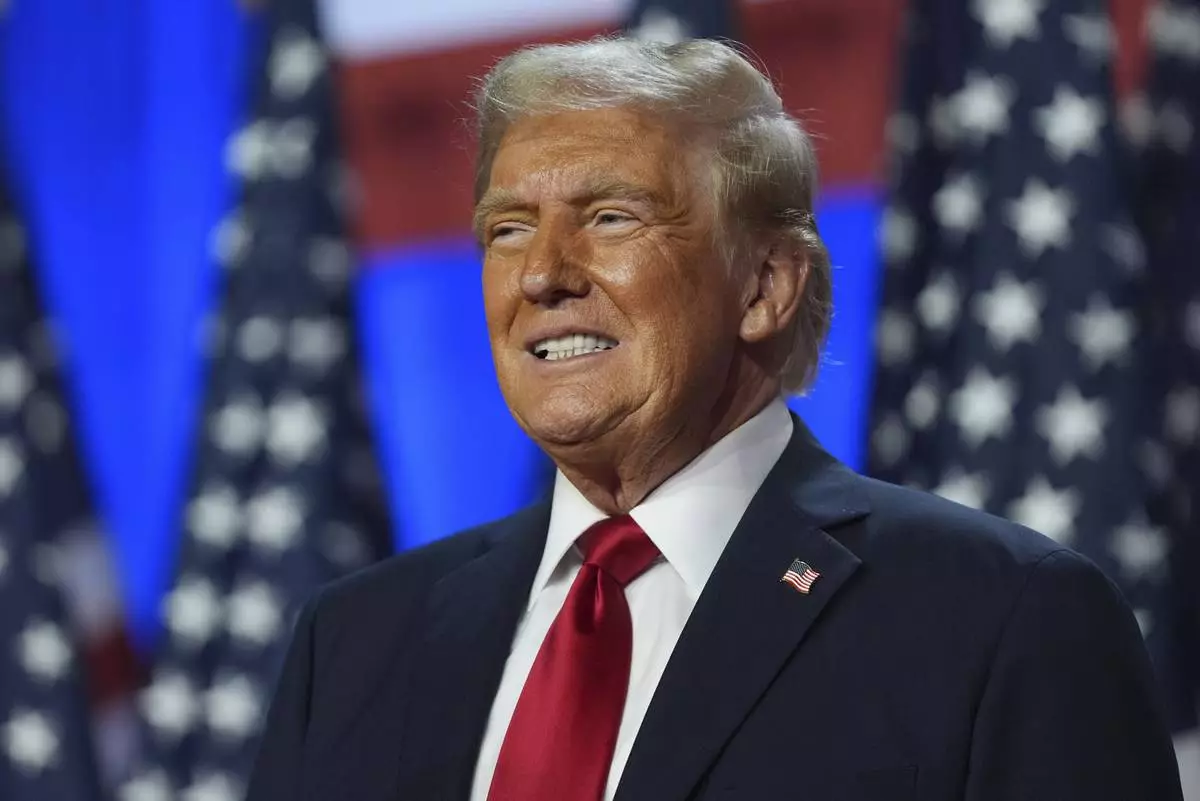
FILE - Republican presidential nominee former President Donald Trump smiles at an election night watch party at the Palm Beach Convention Center, Wednesday, Nov. 6, 2024, in West Palm Beach, Fla. (AP Photo/Evan Vucci, File)
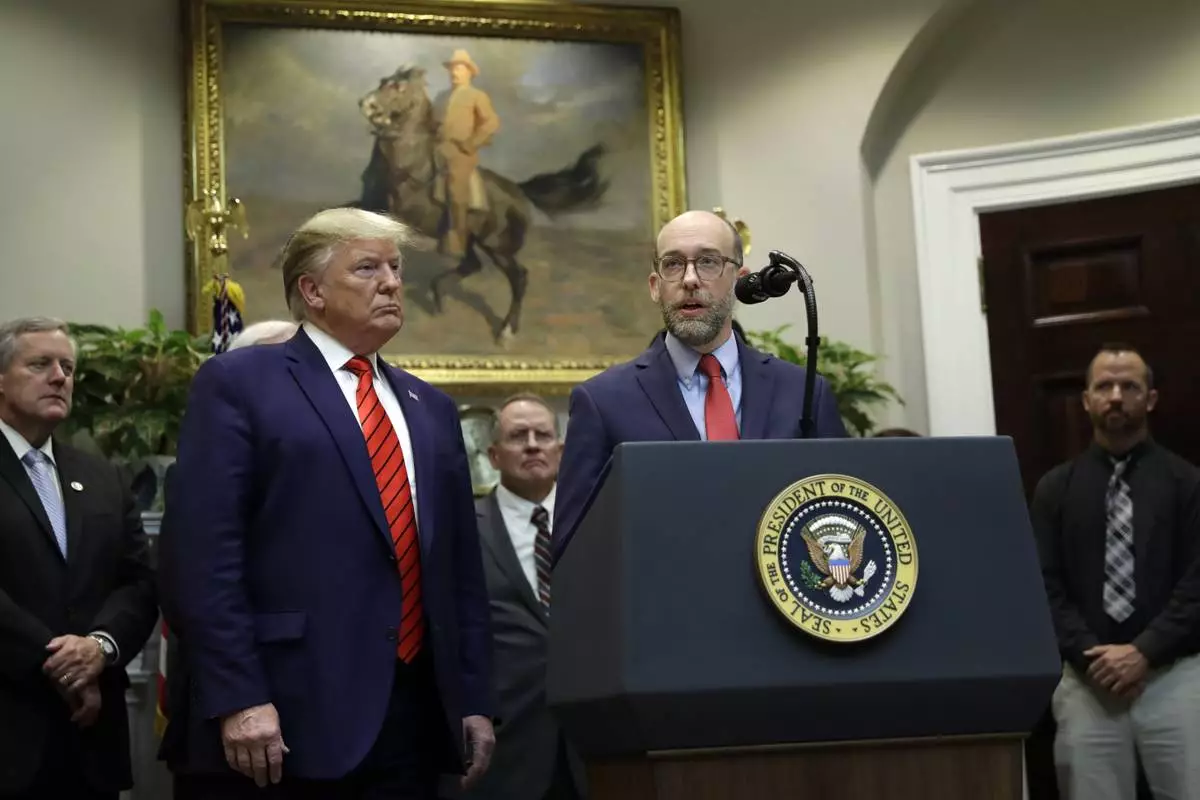
FILE - President Donald Trump, left, listens as acting director of the Office of Management and Budget Russel Vought speaks during an event on "transparency in Federal guidance and enforcement" in the Roosevelt Room of the White House, Oct. 9, 2019, in Washington. (AP Photo/Evan Vucci, File)
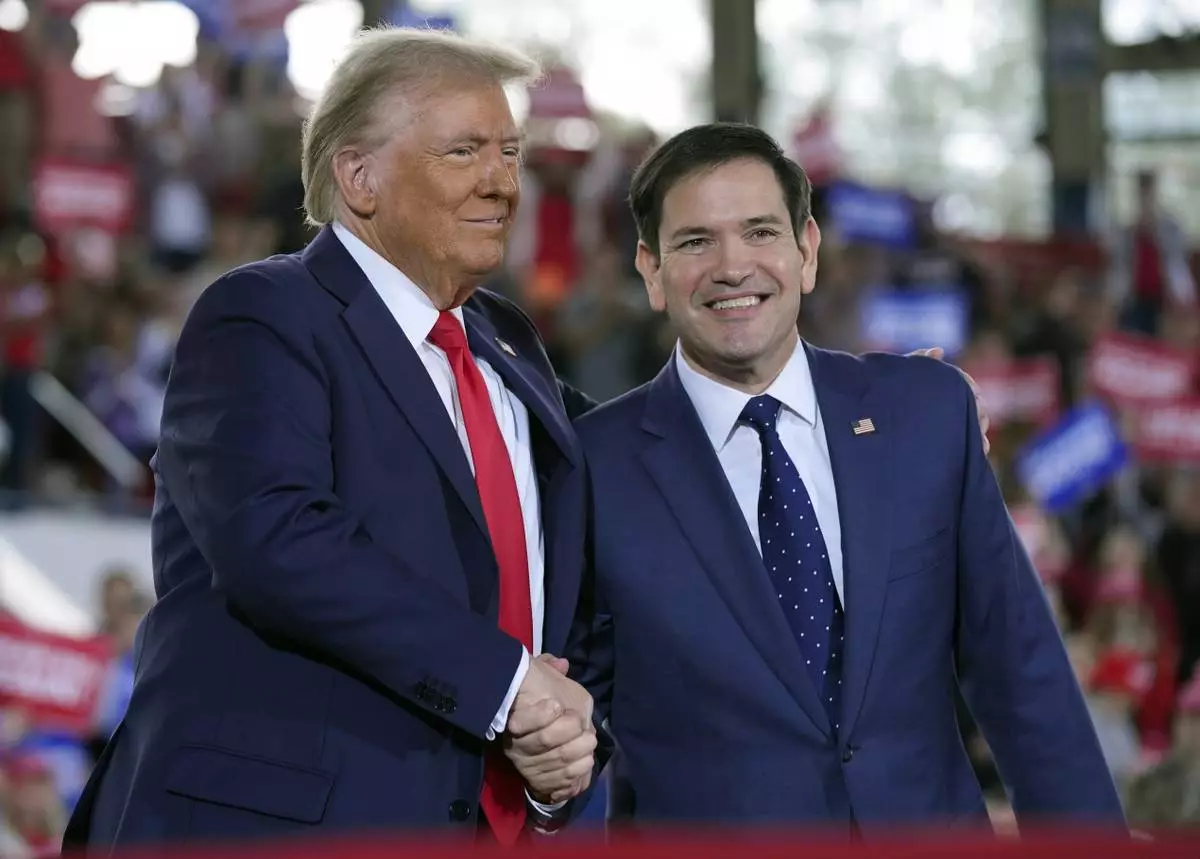
FILE - Republican presidential nominee former President Donald Trump greets Sen. Marco Rubio, R-Fla., during a campaign rally at J.S. Dorton Arena, Nov. 4, 2024, in Raleigh, N.C. (AP Photo/Evan Vucci, File)
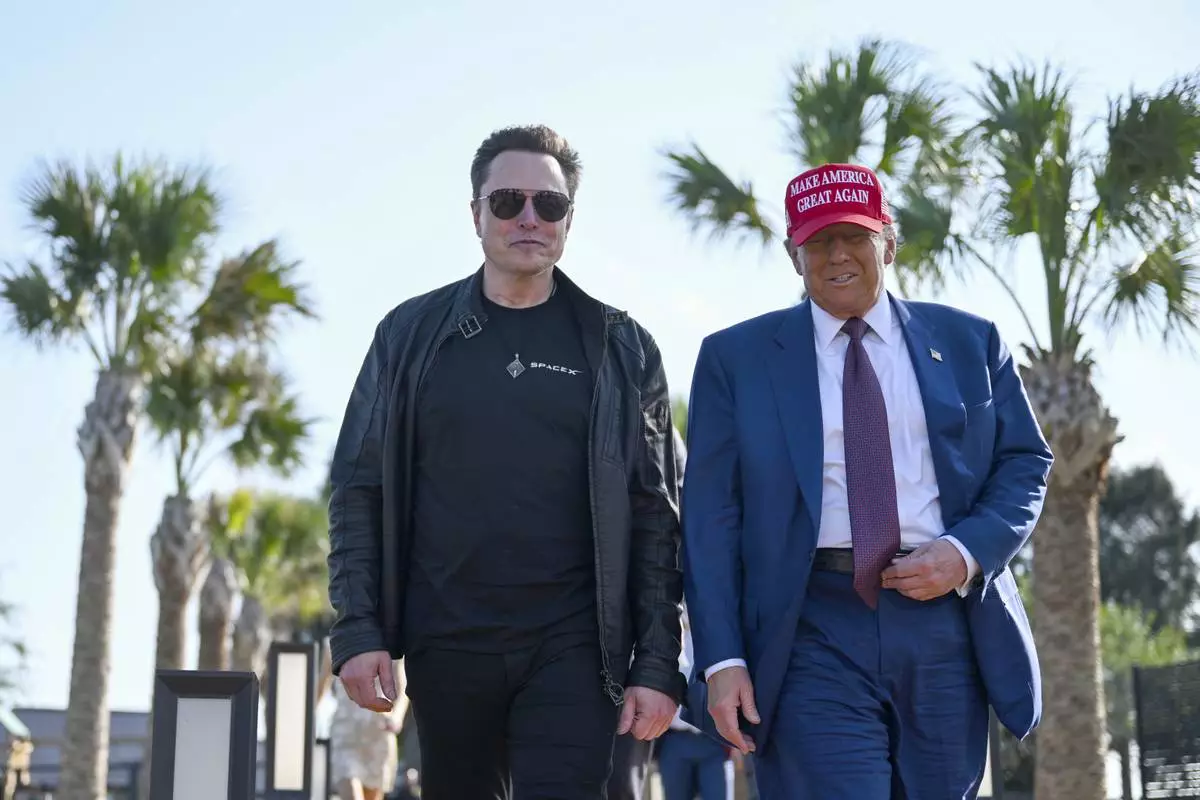
President-elect Donald Trump walks with Elon Musk before the launch of the sixth test flight of the SpaceX Starship rocket Tuesday, Nov. 19, 2024 in Boca Chica, Texas. (Brandon Bell/Pool via AP)
Negotiators gathered in Busan, South Korea, on Monday in a final push to create a treaty to address the global crisis of plastic pollution.
It's the fifth time the world's nations convene to craft a legally binding plastic pollution accord. In addition to the national delegations, representatives from the plastics industry, scientists and environmentalists have come to shape how the world tackles the surging problem.
“We must end plastic pollution before plastic pollution ends us,” Kim Wansup, South Korea's minister of environment, said during the opening session.
The planet is “ choking on plastic, ” according to the United Nations. It's polluting lakes, rivers, oceans and people's bodies.
“Don’t kick the can, or the plastic bottle, down the road," U.N. Environment Programme Executive Director Inger Andersen said in a message to negotiators.
This “is an issue about the intergenerational justice of those generations that will come after us and be living with all this garbage. We can solve this and we must get it done in Busan,” she said in an interview.
The previous four global meetings have revealed sharp differences in goals and interests. This week's talks go through Saturday.
Led by Norway and Rwanda, 66 countries plus the European Union say they want to address the total amount of plastic on Earth by controlling design, production, consumption and where plastic ends up. The delegation from the hard-hit island nation of Micronesia helped lead an effort to call more attention to "unsustainable” plastic production, called the Bridge to Busan. Island nations are grappling with vast amounts of other countries’ plastic waste washing up on their shores.
“We think it’s the heart of the treaty, to go upstream and to get to the problem at its source,” said Dennis Clare, legal advisor and plastics negotiator for Micronesia. “There’s a tagline, ‘You can’t recycle your way out of this problem.’”
Some plastic-producing and oil and gas countries, including Saudi Arabia, disagree. They vigorously oppose any limits on plastic manufacturing. Most plastic is made from fossil fuels. Saudi Arabia is the world’s largest exporter of primary polypropylene, a common type of plastic, accounting for an estimated 17% of exports last year, according to the Plastics Industry Association.
China, the United States and Germany led the global plastics trade by exports and imports in 2023, the association said.
The plastics industry has been advocating for a treaty focused on redesigning plastic products, recycling and reuse, sometimes referred to as “circularity.” Chris Jahn, International Council of Chemical Associations secretariat, said negotiators should focus on ending plastic waste in the environment, not plastic production, to get a deal. Many countries won’t join a treaty if it includes production caps, he said.
To continue to progress and grow as a global economy, there are going to be more plastics, Jahn added.
“So we should strive then to keep those plastics in the economy and out of the environment,” Jahn said.
The United States delegation at first said countries should develop their own plans to act, a position viewed as favoring industry. It changed its position this summer, saying the U.S. is open to considering global targets for reductions in plastic production.
Environmental groups accused the U.S. of backtracking as negotiations approached.
Center for Coalfield Justice executive director Sarah Martik said the United States is standing on the sidelines rather than leading, putting “their thumb on the scale throughout the entirety of the negotiations.” She hopes this does not derail other countries’ ambition.
The U.S. Environmental Protection Agency released a national strategy to prevent plastic pollution Thursday, but Martik said she thinks too many of the measures are voluntary to make a difference.
Democratic U.S. Sen. Jeff Merkley, of Oregon, said it's a mistake for the United States to settle for the lowest common denominator proposals, just to get some kind of agreement.
Luis Vayas Valdivieso, the committee chair from Ecuador, recently proposed text for sections where he thinks the delegations could agree.
The production and use of plastics globally is set to reach 736 million tons by 2040, up 70% from 2020, without policy changes, according to the intergovernmental Organisation for Economic Co-operation and Development.
Research published in Science this month found it is still possible to nearly end plastic pollution. The policies that make the most difference are: mandating new products be made with 40% post-consumer recycled plastic; limiting new plastic production to 2020 levels; investing significantly in plastic waste management, such as landfills and waste collection services and implementing a small fee on plastic packaging.
The treaty is the only way to solve plastic pollution at this scale, said Douglas McCauley, professor at UC Santa Barbara and UC Berkeley. McCauley co-led the research.
Margaret Spring, chief conservation and science officer for Monterey Bay Aquarium, said plastic pollution used to be considered largely a waste problem. Now it is widely viewed as an existential crisis that must be addressed, said Spring, who represents the International Science Council at the negotiations.
“I’ve never seen people’s understanding of this issue move as fast, given how complex the topic is,” she said. “It gives me hope that we can actually start moving the dial.”
The Associated Press’ climate and environmental coverage receives financial support from multiple private foundations. AP is solely responsible for all content. Find AP’s standards for working with philanthropies, a list of supporters and funded coverage areas at AP.org.
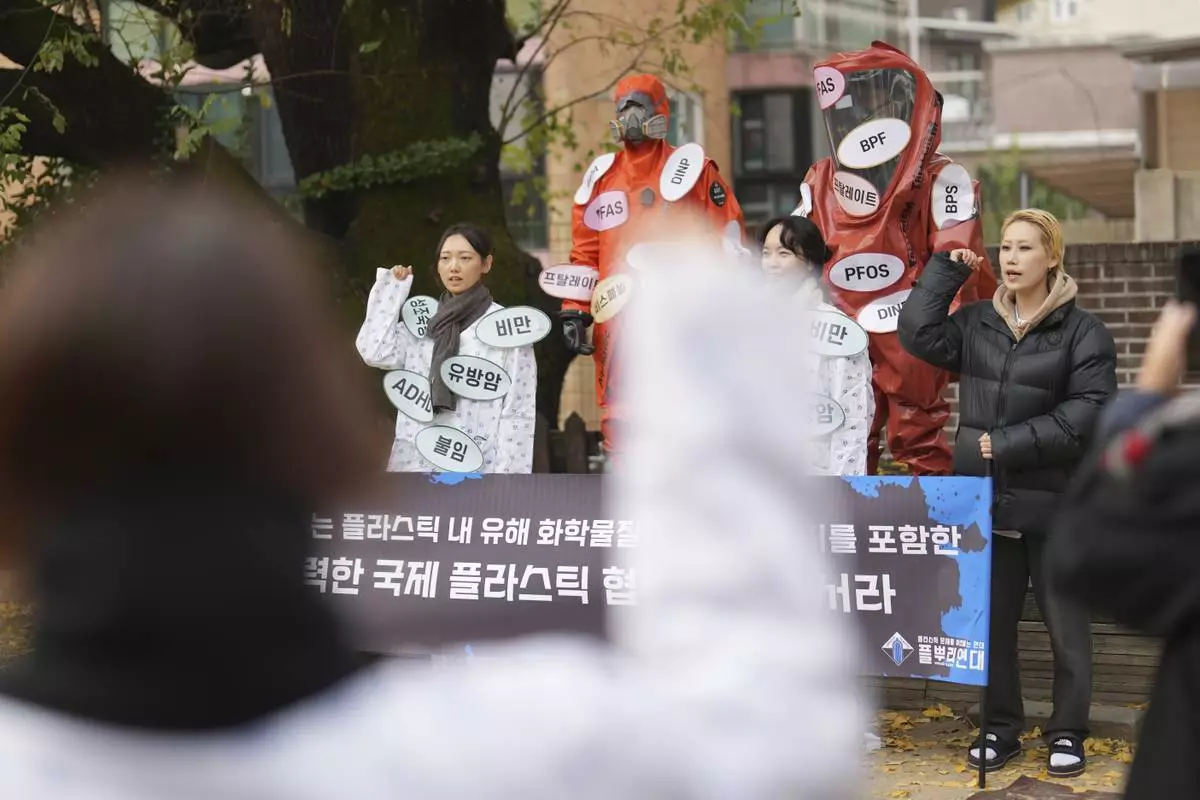
Environment activists shout slogans during a rally calling for a strong global plastics treaty ahead of the fifth session of the Intergovernmental Negotiating Committee on Plastic Pollution which set to be held in Busan from Nov. 25 to Dec. 1, in Seoul, South Korea, Wednesday, Nov. 20, 2024. (AP Photo/Lee Jin-man)
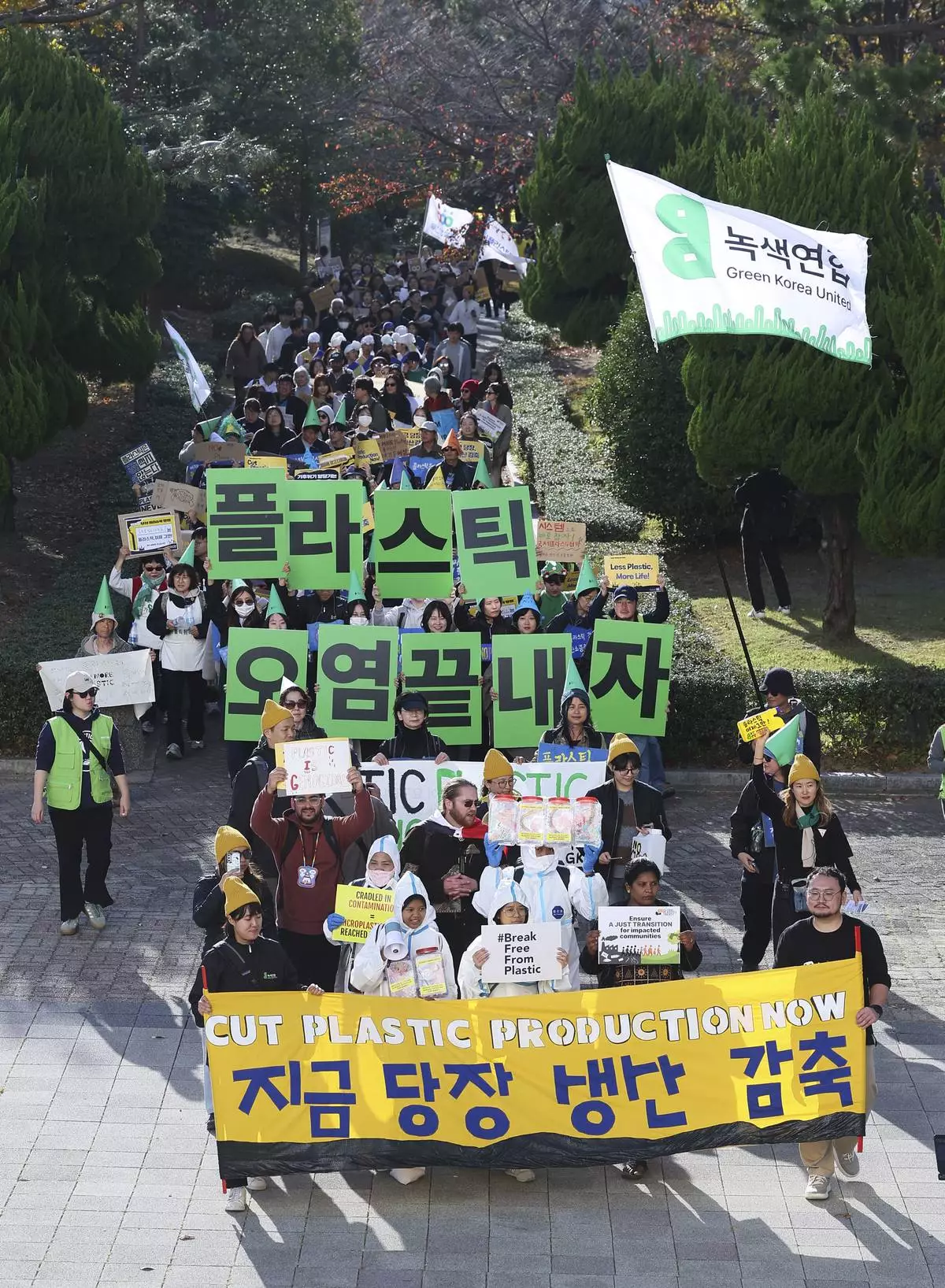
Environment activists march during a rally calling for a strong global plastics treaty ahead of the fifth session of the Intergovernmental Negotiating Committee on Plastic Pollution which sets to be held from Nov. 25 to Dec. 1 in Busan, South Korea, Saturday, Nov. 23, 2024. A signs at center reads "Let's end plastic pollution." (Son Hyung-joo/Yonhap via AP)
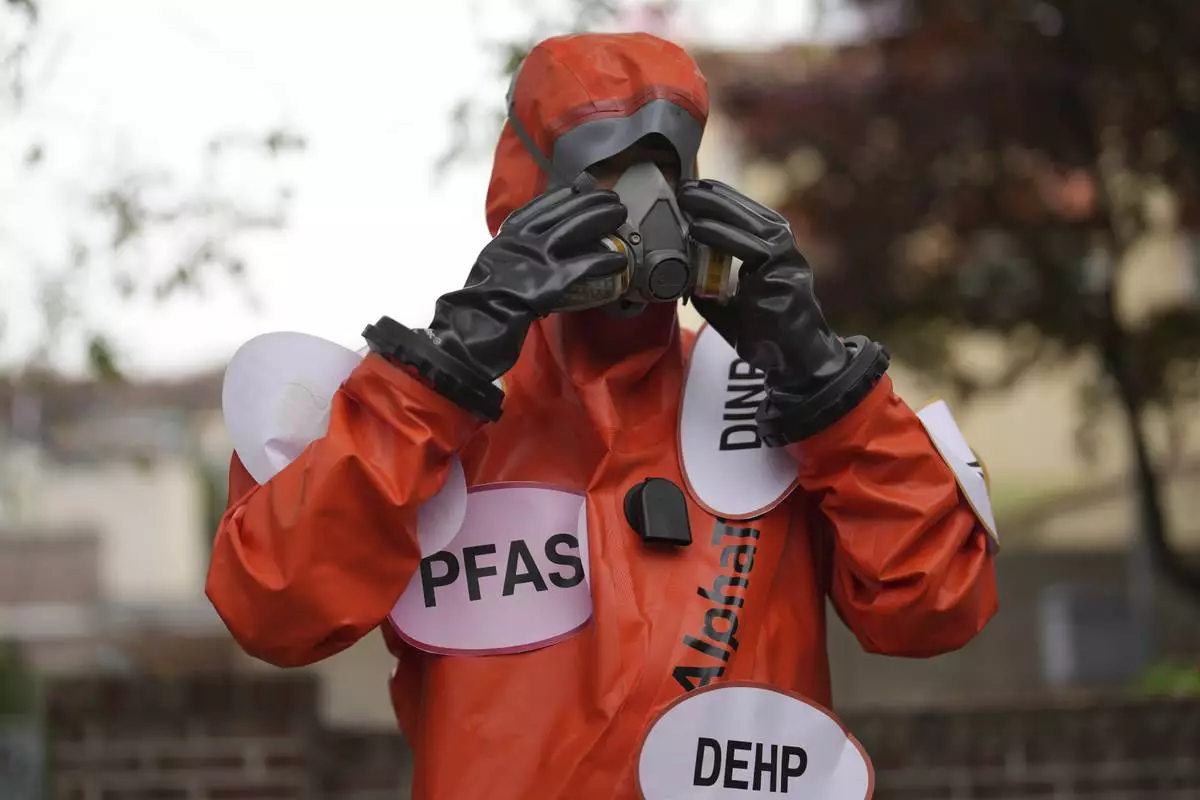
An environment activist wearing a suit prepares for a rally calling for a strong global plastics treaty ahead of the fifth session of the Intergovernmental Negotiating Committee on Plastic Pollution which set to be held in Busan from Nov. 25 to Dec. 1, in Seoul, South Korea, Wednesday, Nov. 20, 2024. (AP Photo/Lee Jin-man)
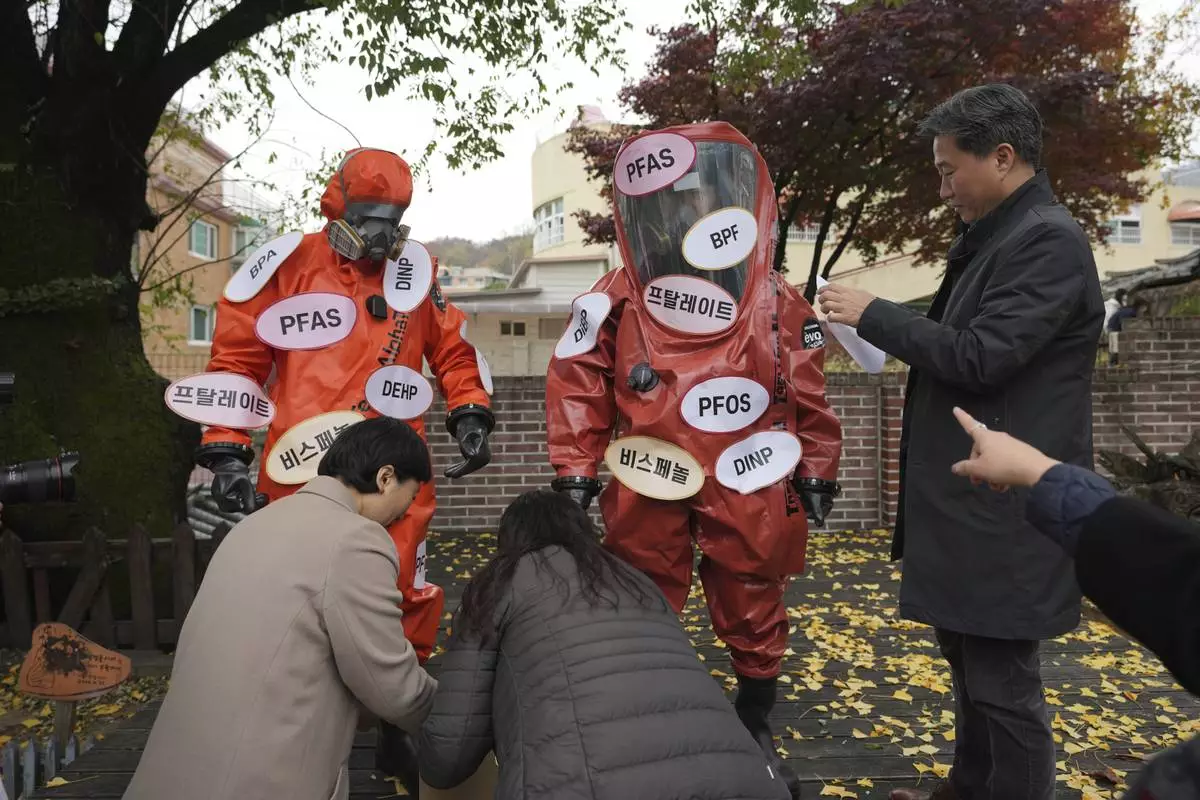
Environment activists prepare for a rally calling for a strong global plastics treaty ahead of the fifth session of the Intergovernmental Negotiating Committee on Plastic Pollution which sets to be held in Busan from Nov. 25 to Dec. 1, in Seoul, South Korea, Wednesday, Nov. 20, 2024. (AP Photo/Lee Jin-man)
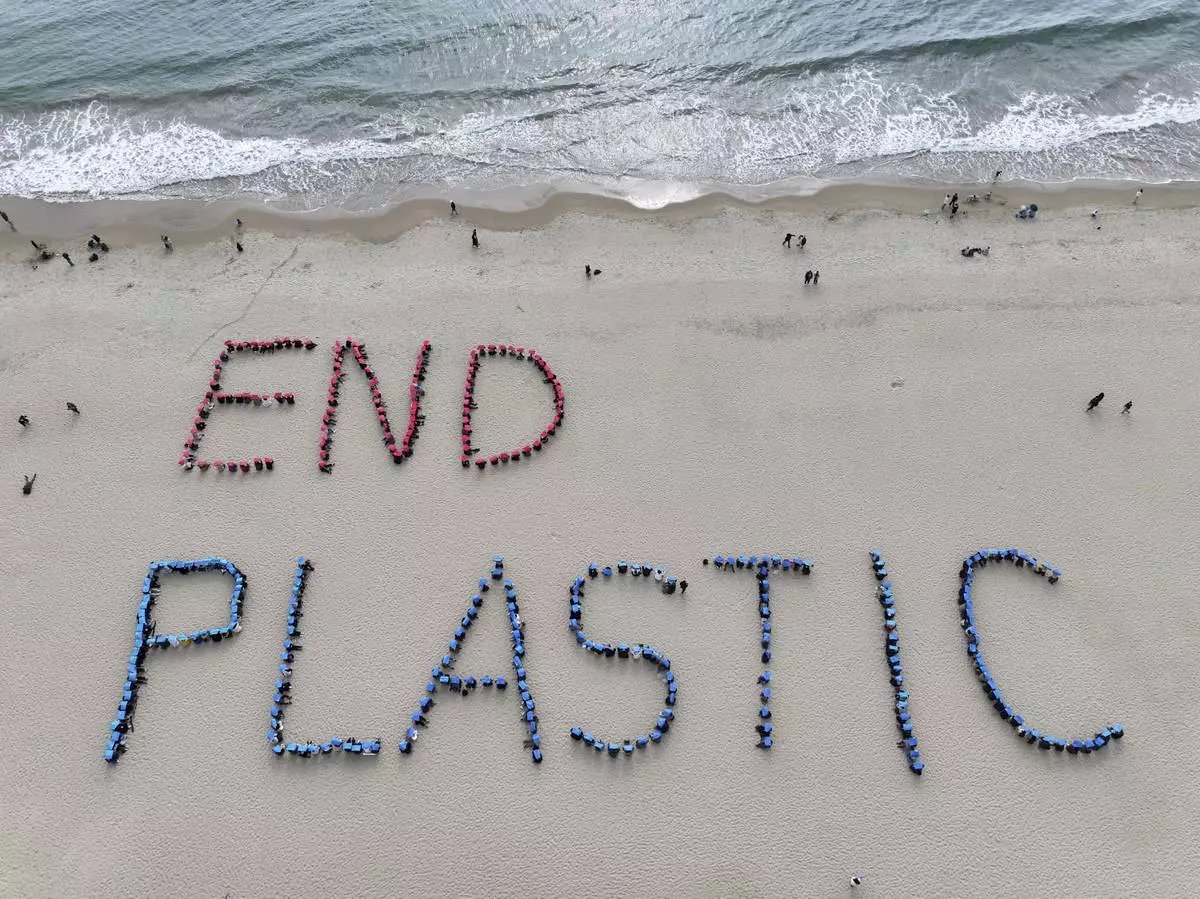
Environment activists perform a human sign calling for a strong global plastics treaty ahead of the fifth session of the Intergovernmental Negotiating Committee on Plastic Pollution which sets to be held from Nov. 25 to Dec. 1 on the beach in Busan, South Korea, Sunday, Nov. 24, 2024. (Son Hyung-joo/Yonhap via AP)
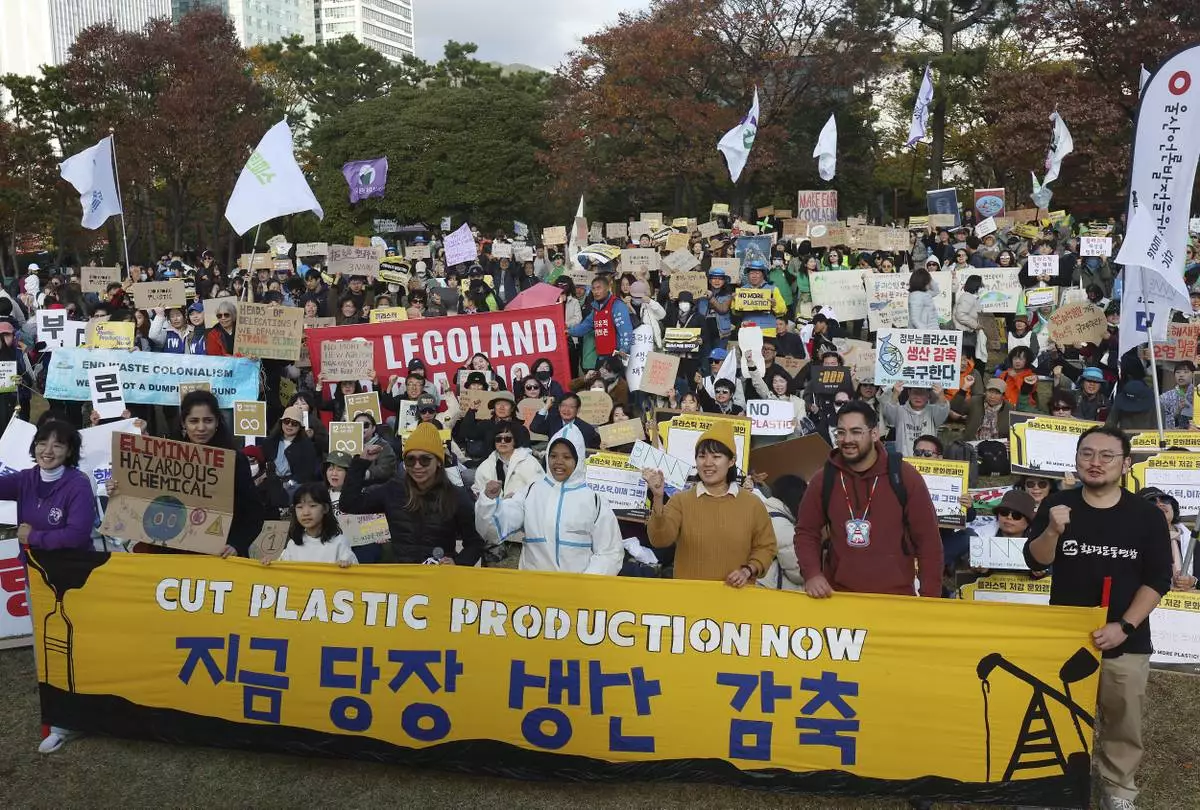
Environment activists stage a rally calling for a strong global plastics treaty ahead of the fifth session of the Intergovernmental Negotiating Committee on Plastic Pollution which sets to be held from Nov. 25 to Dec. 1 in Busan, South Korea, Saturday, Nov. 23, 2024. (Son Hyung-joo/Yonhap via AP)
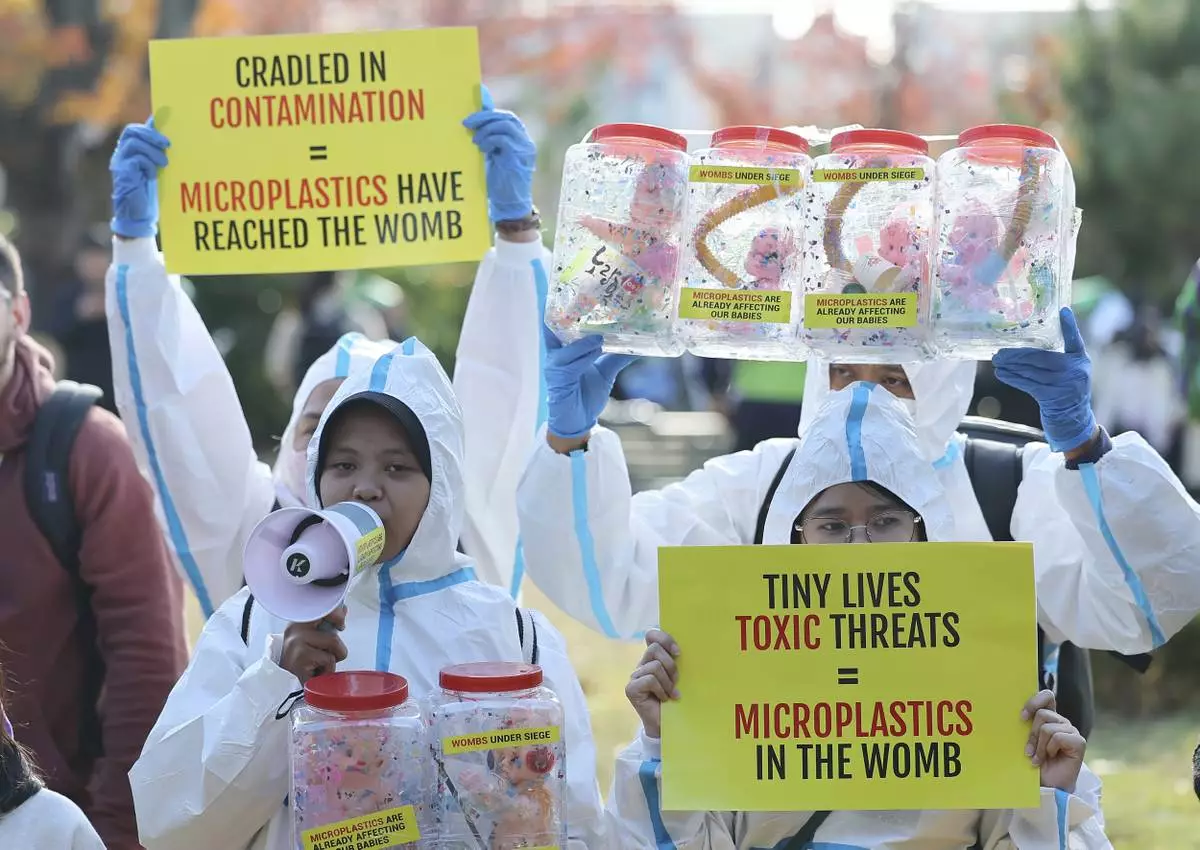
Children attend a rally calling for a strong global plastics treaty ahead of the fifth session of the Intergovernmental Negotiating Committee on Plastic Pollution which sets to be held from Nov. 25 to Dec. 1 in Busan, South Korea, Saturday, Nov. 23, 2024. (Son Hyung-joo/Yonhap via AP)
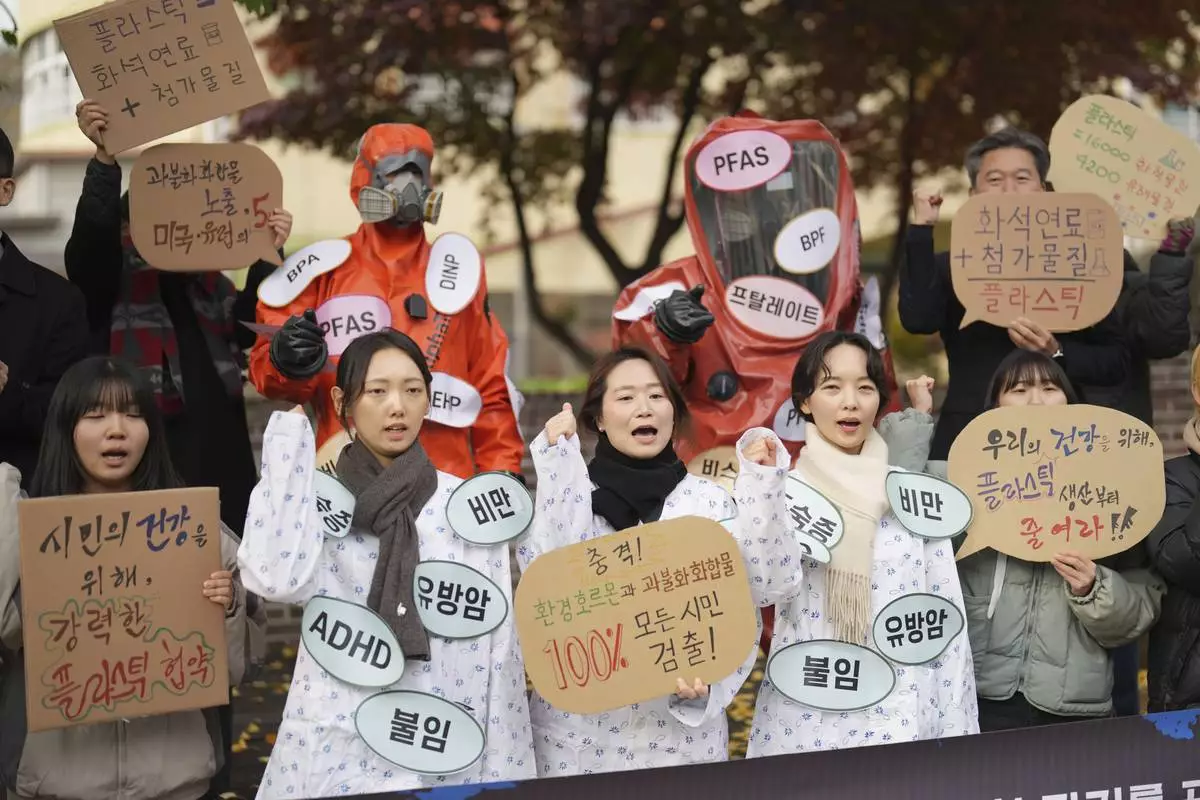
Environment activists shout slogans during a rally calling for a strong global plastics treaty ahead of the fifth session of the Intergovernmental Negotiating Committee on Plastic Pollution which sets to be held in Busan from Nov. 25 to Dec. 1, in Seoul, South Korea, Wednesday, Nov. 20, 2024. (AP Photo/Lee Jin-man)
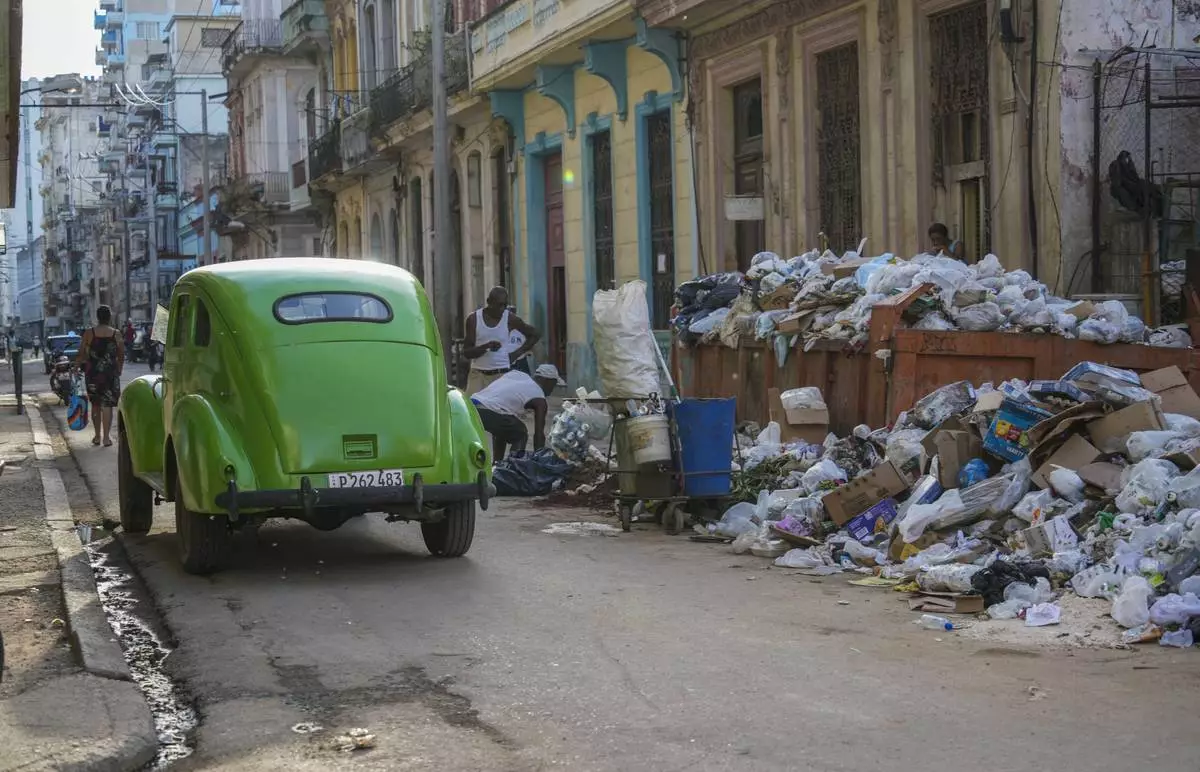
FILE - A classic American car drives past garbage in Havana, Cuba, Sept. 24, 2024. (AP Photo/Ramon Espinosa, File)
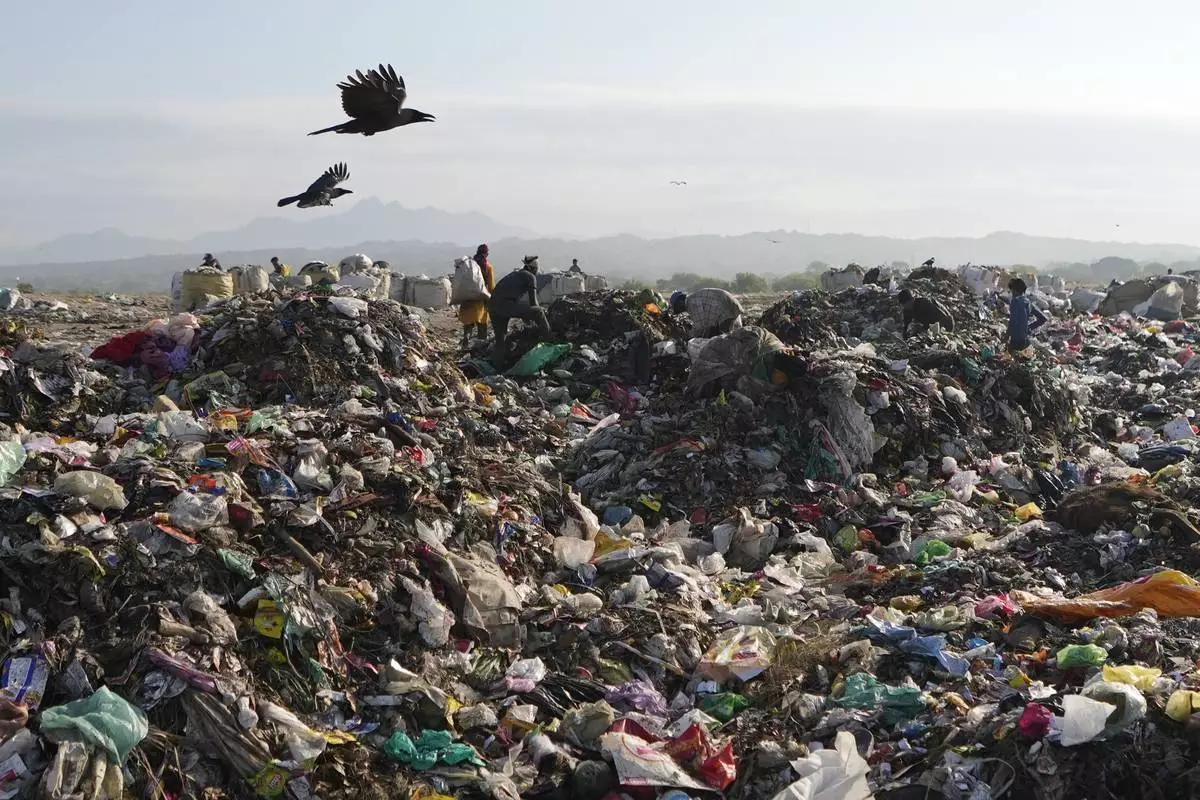
FILE - Indian rag pickers look for reusable material at a garbage dump filled with plastic and other waste material on the outskirts of Jammu, India, April 22, 2024. (AP Photo/Channi Anand, File)
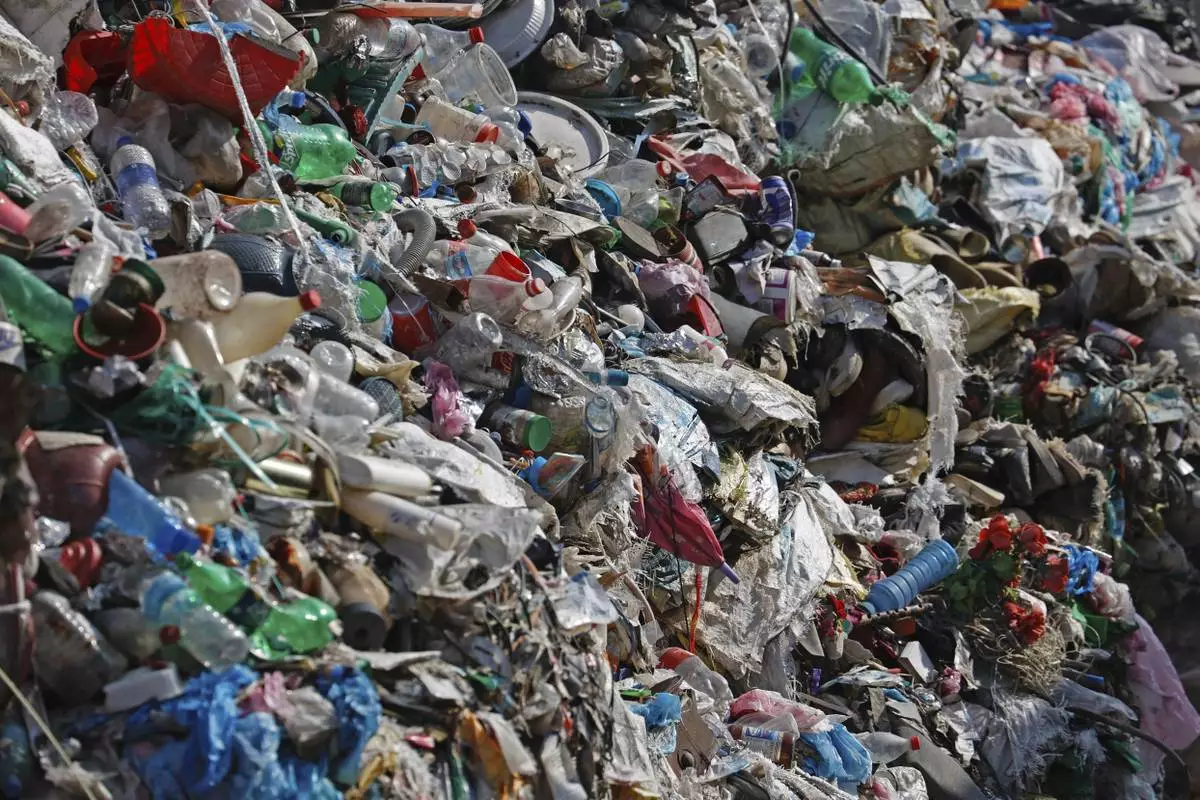
FILE - Garbage collected en route to Mount Everest is piled before it is sorted for recycling at a facility operated by Agni Ventures, an agency that manages recyclable waste, in Kathmandu, Nepal, June 24, 2024. (AP Photo/Sanjog Manandhar, File)
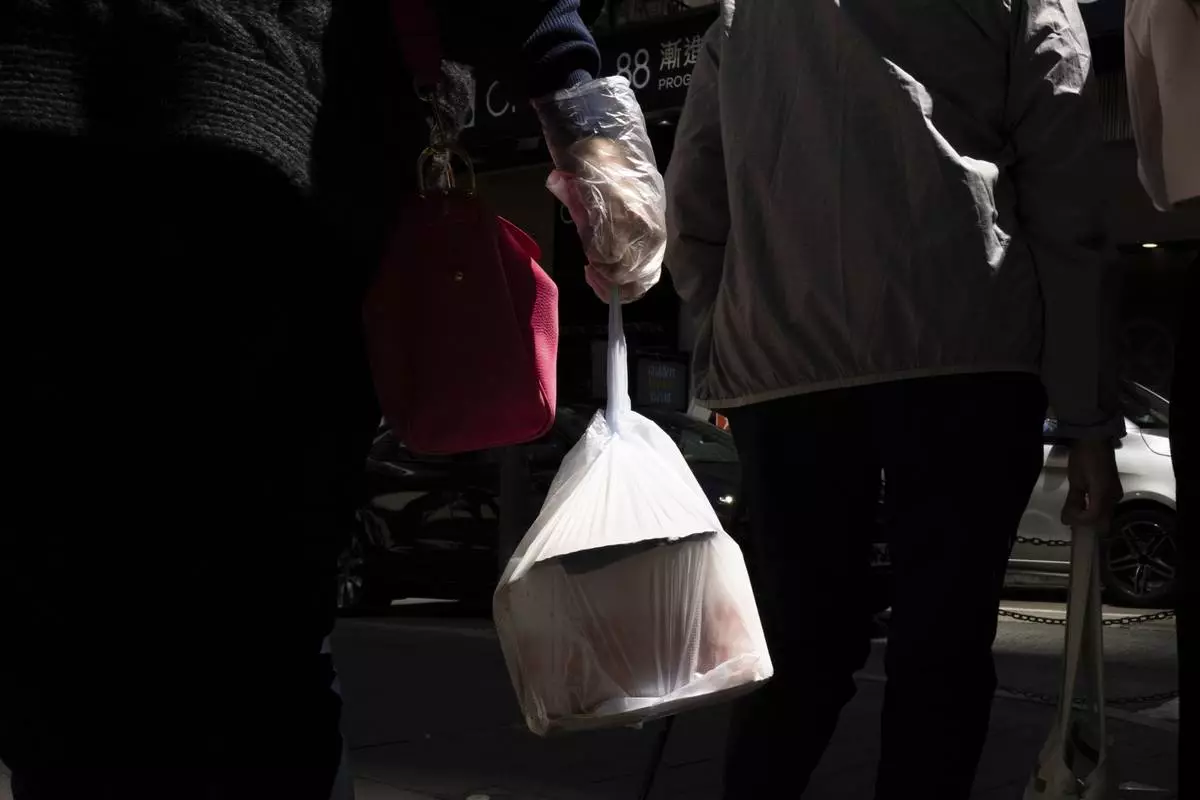
FILE - A pedestrian carries takeaway food in a plastic bag in Hong Kong, March 13, 2024.(AP Photo/Louise Delmotte, File)
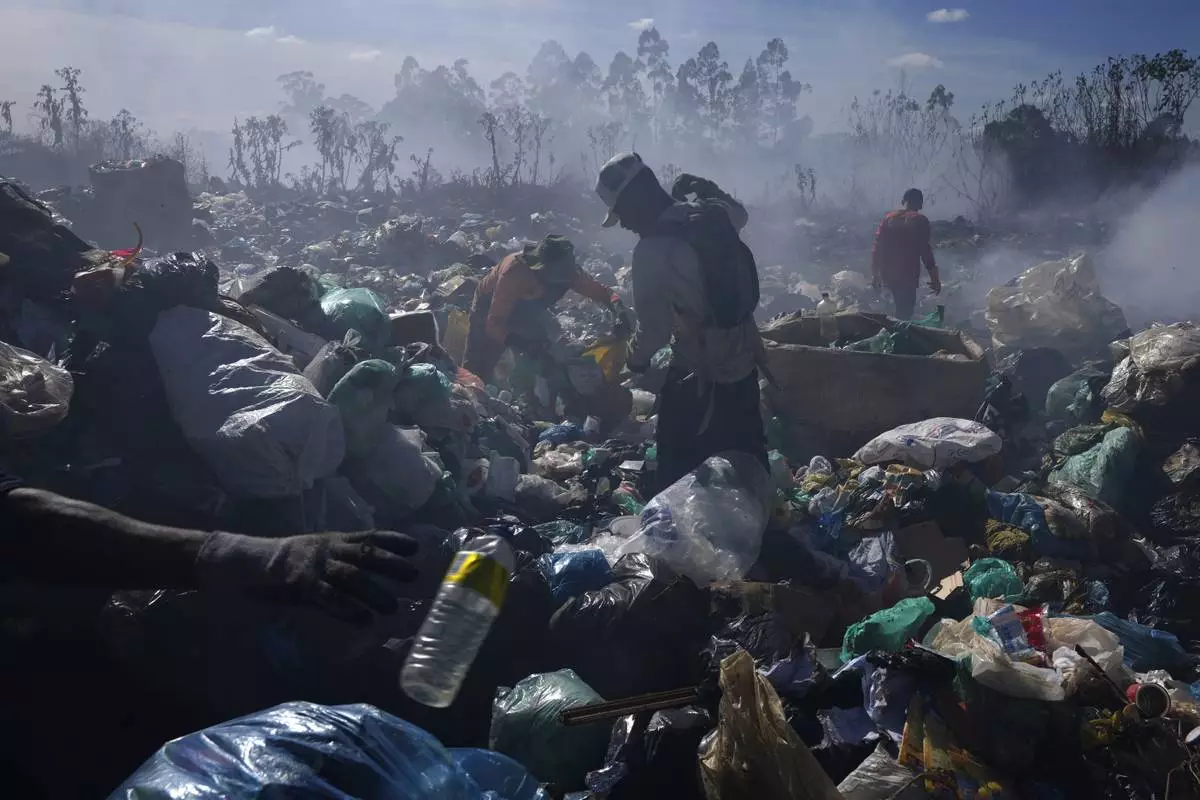
FILE - Recyclable collectors work at the Lixao open-air dump in Santo Antonio do Descoberto, Goias state, Brazil, June 4, 2024. (AP Photo/Eraldo Peres, File)
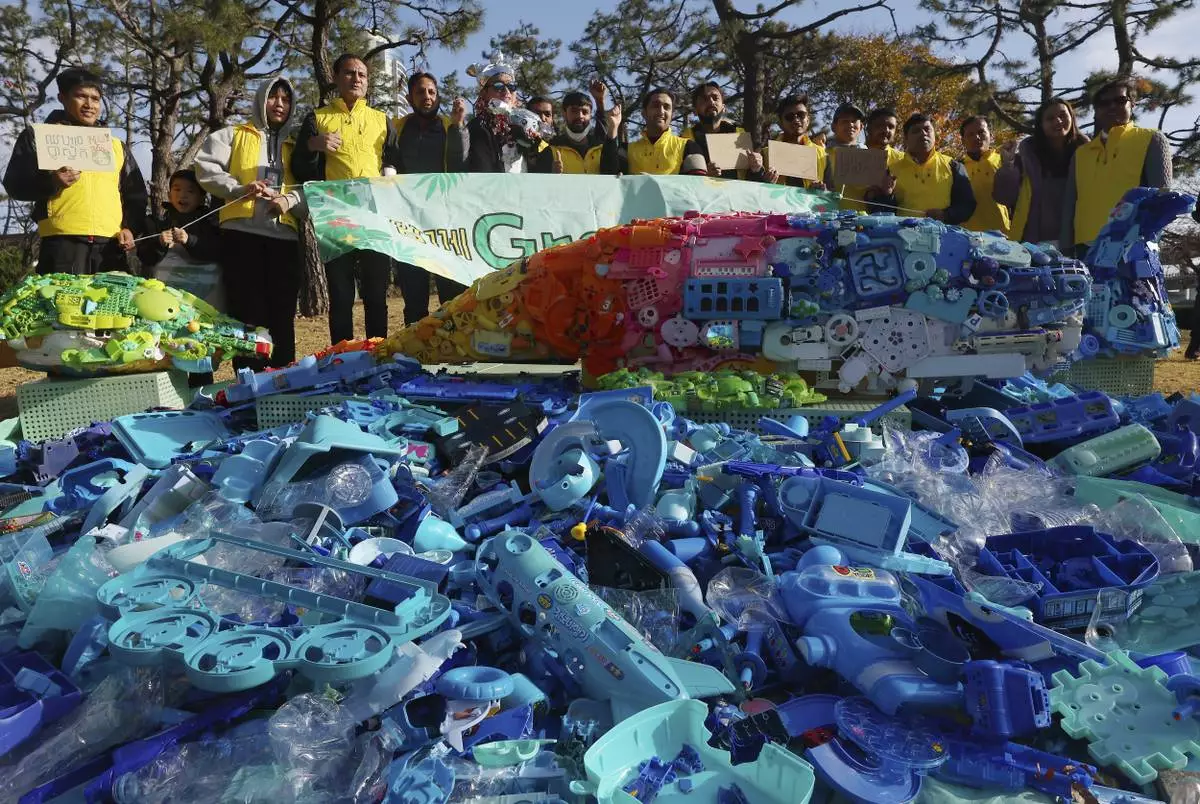
Environment activists stage a rally calling for a strong global plastics treaty ahead of the fifth session of the Intergovernmental Negotiating Committee on Plastic Pollution which sets to be held from Nov. 25 to Dec. 1 in Busan, South Korea, Saturday, Nov. 23, 2024. (Son Hyung-joo/Yonhap via AP)











